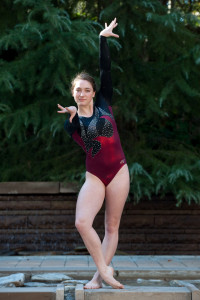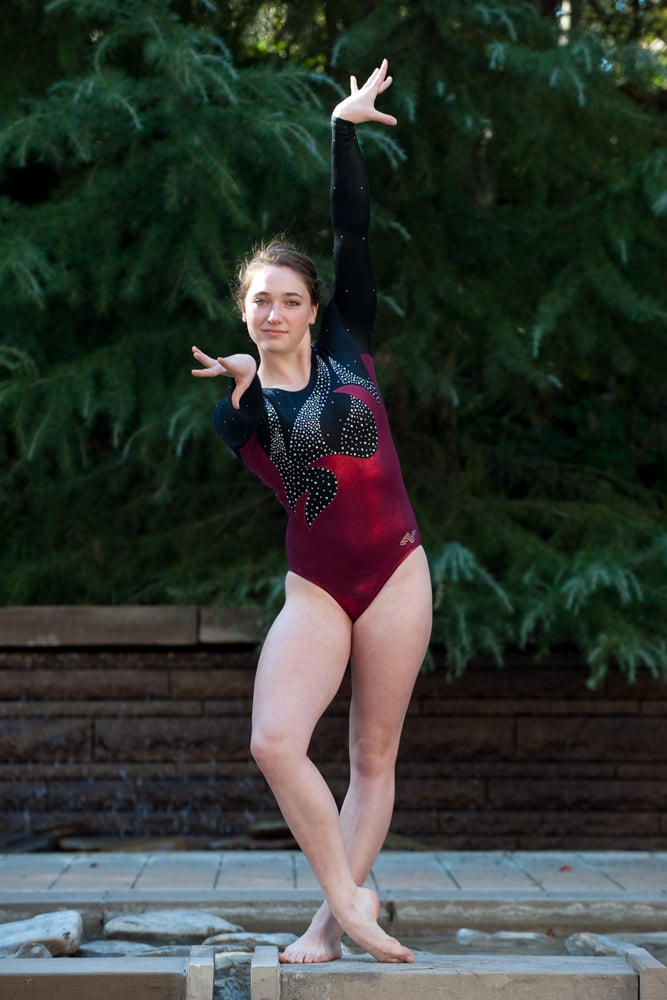Some hate it and some love it. For others, it’s a combination of the two. Athletics is supposed to be a positive influence in any person’s life — whether that person is a Division I athlete aspiring for a professional career or an elderly golfer who has been playing recreationally his whole life. Sports lead to the release of endorphins that make people happier and healthier.

What happens, however, when playing a sport at the collegiate level becomes more like a job? What happens when it produces more pain than pleasure and brings more doubts than certainties?
“I think with all of the hard times, it’s only worth it if you love it,” said junior women’s soccer player Haley Rosen. “I would be lying if I hadn’t thought of quitting, but at the end of the day if you love your sport then there’s no reason that you should stop. But you have to find a way for it to be a manageable lifestyle, where you can handle the ups and downs and all the hours.”
Sophomore Maggie Teets competed for women’s gymnastics last year. However, after a year of those ups and downs, she made the decision to stop competing.
“You have time for two things out of the three — a social life, sports and academics — and so you end up not having a whole lot of time for other things,” Teets said. “You get to learn how to manage your time very well, and I wanted to pursue something else. That’s why I decided not to come back.”
Since the age of 3, Teets has trained for 49 out of the 52 weeks every year. She suffered broken bones and torn ligaments and admitted that injuries are a part of the sport that can’t be avoided. She explained that the atmosphere of training at Stanford was a lot different than at her home gym; that difference, coupled with the difficulty of being away from home, the rigid expectations to succeed and the need to push away any emotions not beneficial to the team as a whole, was too much to handle at times. Diet was strictly regimented and a no-sugar rule was implemented for the team, emphasizing the necessity for gymnasts to keep up appearances and not just performances.
“I didn’t do very well [dealing with the pressure],” Teets said. “I wasn’t very happy last year. I did not handle the pressure as well as I could have…I think it was an adjusting process and toward the end of the year, I learned how to manage all that. But coming in and starting, I think I cried every day for months. It was a lot to take in.”
“Being on a team really has the capacity to warp your goals and totally push you in a direction you didn’t anticipate going in,” explained another athlete who made the decision to leave his/her sport. “That’s just the culture. All of the facilities, all of the advantages that athletes get, the more they give you the more they own you.”
There’s pressure to keep competing on several fronts: to pay for college and keep one’s scholarship, to maintain the status and prestige that being a student-athlete brings, to not let down family, teammates or coaches and to not break a commitment.
“If you get yourself to a point where you don’t really want to be doing it anymore, it’s too late,” said senior golfer Cameron Wilson. “You’ve already made a promise to your teammates, your coaches and all the people who are helping.”
The outside voices and factors can be overwhelming, and they make it hard to decide whether to keep competing or to take a different path that could potentially be more rewarding.
“The thing about being on an athletic scholarship is that it’s an honor, but it also carries this burden where you can never back out of it,” said another athlete. “Sometimes you feel trapped and it puts you in this dilemma, because to get your education paid for is so huge.”
Not all athletes leave their sport just because of those pressures. Many decide that their time at Stanford would be better spent pursuing other avenues and opportunities, and if they’ve lost their love for their sport, that it isn’t worth the huge chunk of time and energy anymore.
“Playing a Division I sport requires so much effort and so much mental strength,” said sophomore women’s soccer player Sarah Cox. “It’s a really difficult thing if you don’t love the sport and you’re not playing for the love of the game or if you don’t love your teammates.”
Furthermore, it’s hard to keep going for athletes when their bodies are being beaten up by the impact of sports like gymnastics, track or football, which can have long-term repercussions on athletes’ health.
“I think it’s instinctive in athletes to just keep pushing themselves to see how far they can get,” said Stanford track athlete Steven Solomon, who was also part of the Australian 2012 Olympic team. “I’m way too in love with what track and field gives me to even consider stopping, even at the lowest points in track and field, like my [ruptured disk] injury last year…[But] of course there [were] natural thoughts of ‘what are you doing?’”
Things can get particularly difficult for student-athletes when so much effort is being put in but the results aren’t showing.
“If you get too bogged down with the tough parts of the sport — which are a lot — there can definitely be other things on campus that are more appealing,” said senior rower Austin Hack. “Day to day, you might not see that much progress; you’re grinding so hard and pushing for it, and it takes a long time for all of your efforts to come through.”
Ultimately, the athletes agreed that the decision to keep playing is one decision that only the athlete — and nobody else — can make in order to be happy in the long run.
“We don’t want to force anyone to do anything that they don’t want to do,” said men’s rowing head coach Craig Amerkhanian. “We need people that really want to be here and for each other, like every team does. I wish everyone stayed on the team and nobody ever left, but that’s not realistic.”
Sophomore guard Kiran Lakhian left the women’s basketball team after her freshman year, realizing that the amount of time that it required was not worth it when her grades started to drop and playing time was scarce. For Lakhian, basketball could no longer be the priority in her life if her ultimate goal was going to medical school, so she chose to leave her sport and make her medical aspirations a more significant priority in her life. She currently interns with the sports medicine program and Human Performance Lab while working for a nonprofit as a nutritional director.
“I’m just able to explore all the different organizations and opportunities whereas before [it was] basketball and school, that’s it,” Lakhian said. “At the same time, I do miss it because I did put 18 years of my life into it, so I feel like I gave up, which is kind of hard.”
The benefit of no longer being an athlete at Stanford, one current athlete commented, is that they are able to better plan ahead for the future and not be so consumed with just getting through the week, which is the only thing that being an athlete allows for.
“There were so many things I wanted to do but couldn’t because of the time commitment that athletics had,” Teets said. “I really wanted that happiness and to get involved and I have, and I don’t regret quitting at all.”
Contact Ashley Westhem at awesthem ‘at’ stanford.edu.
